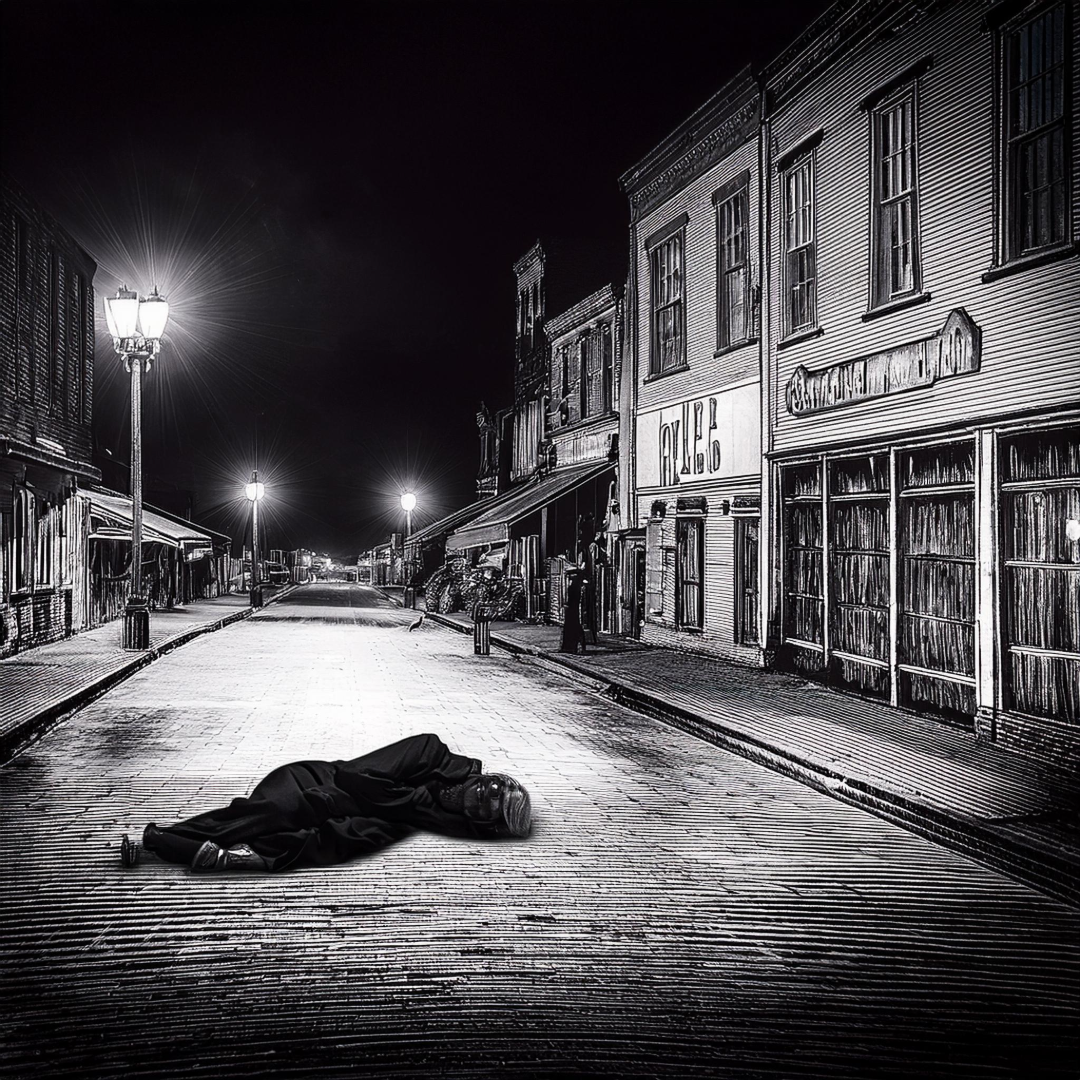It was a hot, sticky evening in the summer of 1954 when Judge Thaddeus P. Albertson met his untimely end in the town of Serpent’s Hollow, Alabama. Now, Serpent’s Hollow wasn’t the kind of place you’d find on any respectable map, but in that year of our Lord 1954, it sure had a way of making itself known to those who mattered – and by “mattered,” I mean the sort of folks who’d sooner shake hands with the devil than attend Sunday service.
The good judge, may he rest in peace (though I reckon he’s more likely giving Old Scratch a run for his money), had gotten it into his head that Serpent’s Hollow needed cleaning up. Cleaning up! As if the town was some kind of mess that needed tidying, instead of a finely tuned machine of vice and corruption that had been running smoother than a greased pig at a county fair for nigh on three decades.
Now, Judge Albertson wasn’t from these parts, you see. He’d come down from up North somewhere – Massachusetts or Maine or one of them other states where they think they invented morality. He’d been appointed by the governor, who’d been feeling the heat from Washington about the “situation” in Serpent’s Hollow. As if our little slice of paradise was some kind of “situation” that needed fixing!
The judge rolled into town like Moses coming down from the mountain, all righteousness and stone tablets. He started poking his nose where it didn’t belong, asking questions about the gambling halls and the brothels and the bootlegging operations that had made Serpent’s Hollow the envy of every other corrupt backwater in the state.
“This town is a cesspool of sin and degradation!” he’d thundered from the bench one day, his face redder than a tomato in August. “And I aim to drain it!”
Well, I don’t need to tell you that sort of talk didn’t sit too well with the powers that be. Mayor “Slippery” Sam Higgins and Police Chief “Blind Eye” Billy Johnson had a quiet word with some of the local businessmen, and before you could say “Jack Robinson,” there was a price on the judge’s head big enough to make Judas Iscariot blush.
It was on a Tuesday night – or maybe it was a Wednesday, the days tend to blur together in Serpent’s Hollow – when Judge Albertson took his last walk down Main Street. He’d just finished his dinner at the Bluebird Cafe (run by Widow Jenkins, who made a mean peach cobbler and an even meaner moonshine) when two shots rang out.
The judge crumpled like a house of cards in a tornado, right there on the sidewalk in front of Honest Abe’s Pawn Shop (which, I should mention, was about as honest as a fox in a henhouse).
Now, you might think that in any normal town, the murder of a judge would cause quite a stir. But Serpent’s Hollow wasn’t any normal town. Chief Johnson arrived on the scene, took one look at the body, and declared it a tragic case of suicide.
“Suicide?” someone in the gathering crowd asked. “But he was shot twice in the back!”
Chief Johnson just shook his head sadly. “Just goes to show how determined he was,” he said, and that was that.
The next day, life in Serpent’s Hollow went on as if nothing had happened. The roulette wheels kept spinning, the whiskey kept flowing, and the politicians kept lying. But if you listened real close, you might have heard the faint sound of laughter coming from the cemetery on the hill – the sound of Judge Albertson having the last laugh.
Because what nobody knew – not Mayor Higgins, not Chief Johnson, and certainly not the fine upstanding citizens of Serpent’s Hollow – was that Judge Albertson had mailed a thick envelope full of evidence to the FBI the very morning of his death.
And as the summer heat baked the sidewalks of Serpent’s Hollow, a storm was brewing in Washington. A storm that would soon break over our little town like the wrath of God Himself.
But that, as they say, is another story.

